In my previous post I was writing about how to start and plan your work while developing post jam version of a game. For last few weeks I was working on improving my game based on players feedback. Here I will share most interesting problems from my ludum dare entry, and how I handled them in the post jam version.
1. Game difficulty
Problem: Game is too hard
I got a lot of feedback that game is too hard, as not everyone is fan of hardcore gaming. Some people have big satisfaction because of that, others gave up much faster. I didn’t want to use standard “please choose your level of difficulty” because of:
- players have no way to guess which level will be good for them upfront
- lowering game difficulty while playing the game is not a nice feeling to everyone
- each player have different perception which level is hard for them
Solution: Let player decide difficulty dynamically based on the reward
I used star
apple system known from many mobile games.
So instead of loosing the game, when you run out of resources, you can
buy a resource using apple (up to 3). Your final score of the level
depends how many apples you used. Players can decide themselves if they are satisfied with the score, and go back and replay the level when they master the game.
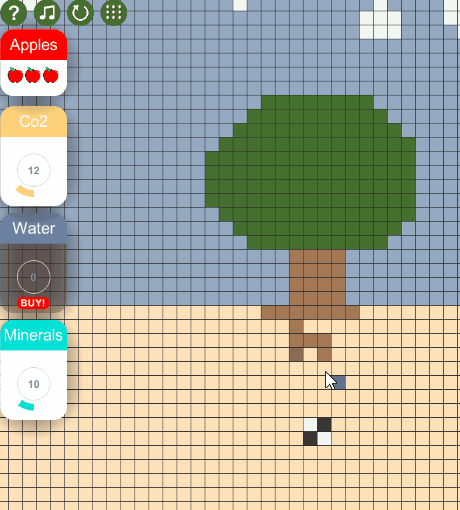
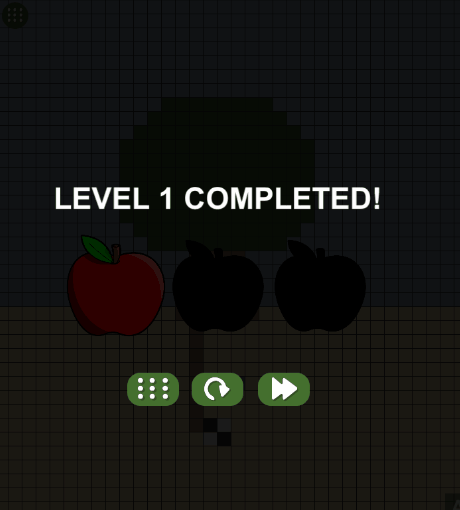
2. Game response to players actions
In roots puzzle there is a simple economy mechanism:
- water tile gives 10 Water
- mineral tile gives 10 Minerals
- leaf tile gives 2 Co2, but cost 1 Water 1 Mineral
- root tile cost 1 Co2 + 1 Water + 1 Mineral
I could write all of it in a game tutorial but didn’t want to, because:
- I wanted players learn this rules themselves by just playing around and observe changes in the resources panel
- reading text is boring
Some
players liked it and learn it in the first minute of a game, others
were not able to completely work it out till the end. My conclusion was,
that changes of resource might not be enough response for player’s
action. Therefore in post jam version I display popups with exact
numbers of resources gained (10, 2), like in a picture below:
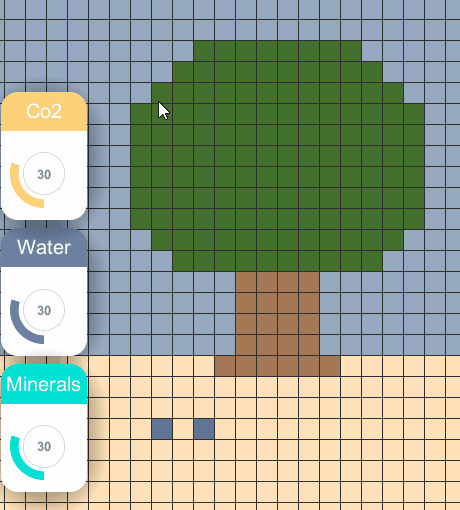
3. Unfair game mechanisms
Problem: There is no fun in counting tiles, just to know if you have enough resources to reach the goal
That was clear for me from the beginning, although I thought players would not mind just try & die approach that instead of counting whole path you just follow the algorithm:
- try path A
- lose and restart
- try path B
- win
As levels are quite small and fast to rerun there was no big pain in restarting the level. Although I was wrong. Some players see learning by loosing as a unfair mechanism.
Solution: Let’s make counting easy and fun
In post jam version I added a distance measure tool that you can unlock. So players who prefer to make ideal plan from the beginning of the game, have tools that will make this process more fun:
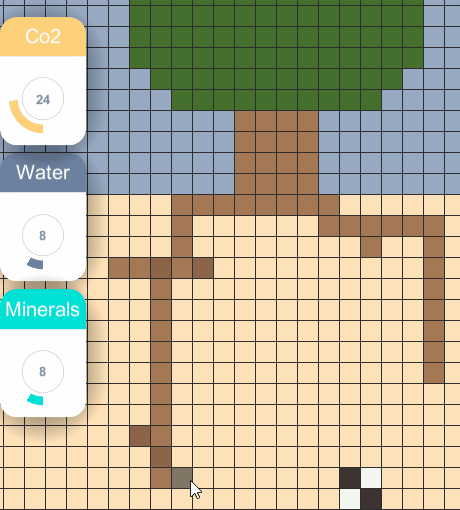
4. Visibility of Game progress
In original version, you have no indicator of how many levels game has(aside of description below the game, that nobody reads or remember). Players have more motivation to finish the game, when they now how many levels are are waiting for them, and how much progress they already made. Together with changes for game difficulty it was a perfect moment to introduce a board when you can see, select and unlock all the levels:
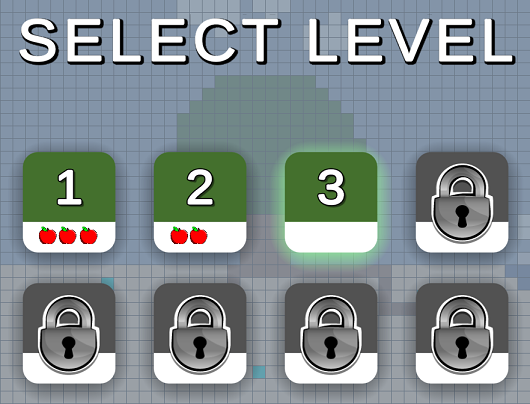
5. Players are different. Fun, difficulty and fairness is subjective
This point might be the main conclusion from all my learnings during this project. I could observe different people having completely different reactions while playing it. I could also see a small argue over my game between 3 different players, about which of game mechanism/improvement suggestions are good or bad. I needed to think and check how one change will increase fun for one person and destroy it for another. Therefore while looking for fun in a game as a single indie dev don’t count just on yourself. Try to get as much valuable feedback as you can.
Thanks for reading, if you want to try my post jam version you can play it here: https://wdebowicz.itch.io/roots-puzzle it’s still in development so would love to get your feedback.
No comments:
Post a Comment